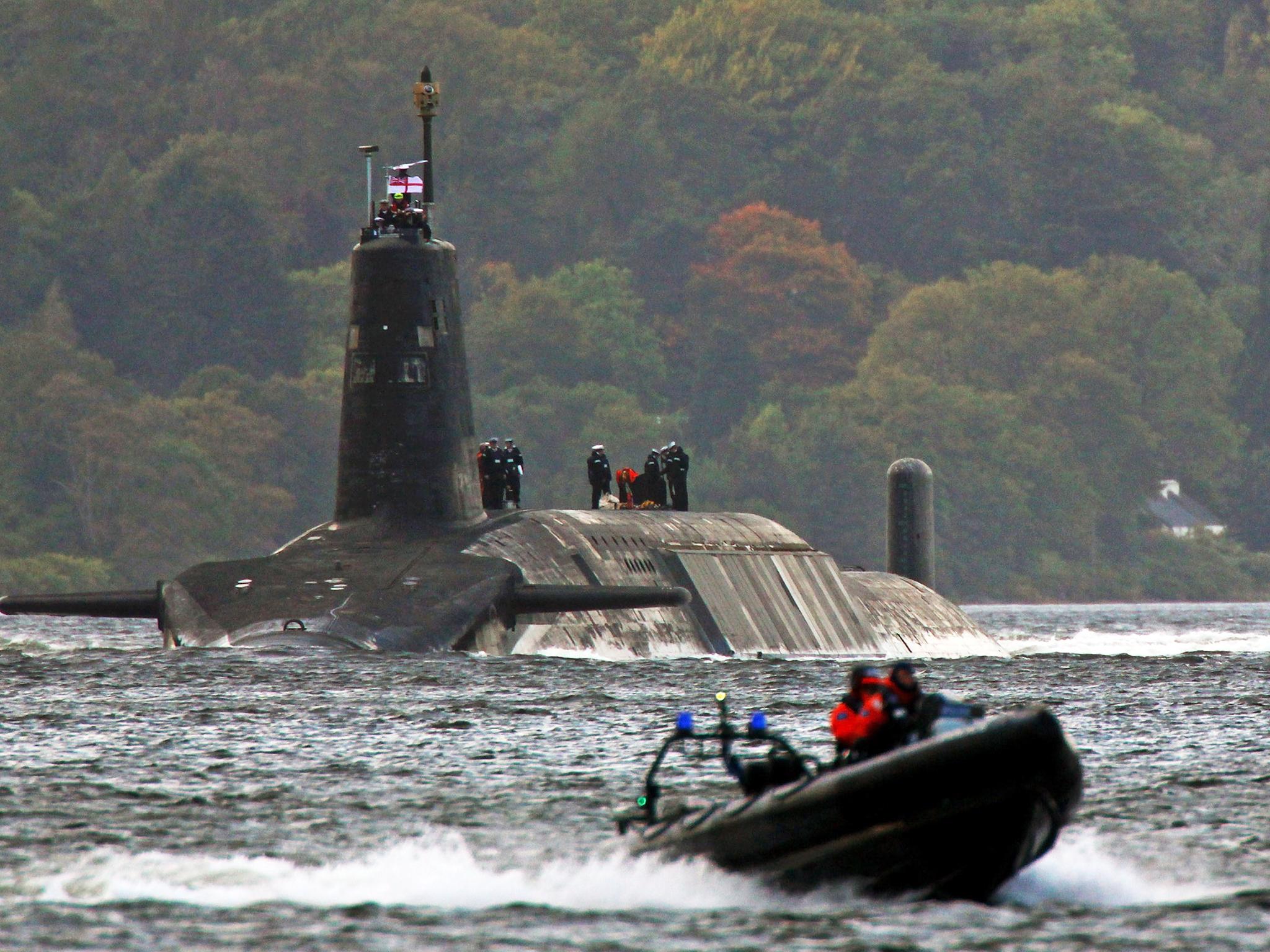British nuclear weapons workers to go on strike over Atomic Weapons Establishment pensions dispute
Staff manufacture and maintain nuclear weapons including the Trident programme

Your support helps us to tell the story
From reproductive rights to climate change to Big Tech, The Independent is on the ground when the story is developing. Whether it's investigating the financials of Elon Musk's pro-Trump PAC or producing our latest documentary, 'The A Word', which shines a light on the American women fighting for reproductive rights, we know how important it is to parse out the facts from the messaging.
At such a critical moment in US history, we need reporters on the ground. Your donation allows us to keep sending journalists to speak to both sides of the story.
The Independent is trusted by Americans across the entire political spectrum. And unlike many other quality news outlets, we choose not to lock Americans out of our reporting and analysis with paywalls. We believe quality journalism should be available to everyone, paid for by those who can afford it.
Your support makes all the difference.Employees responsible for manufacturing and maintaining the UK’s nuclear weapons are to go on strike.
Workers at the Atomic Weapons Establishment (AWE) are to stage two 48-hour walk-outs as part of a long-running dispute over pensions.
Unite said 600 of its members, who work as managers, craft and manual workers at the AWE’s two sites at Aldermaston and Burghfield in Berkshire, will strike on 18 and 30 January.
A spokesperson said workers felt “deeply betrayed” by promises made decades ago guaranteeing their pensions, when they were transferred from the Ministry of Defence (MoD) to the private sector, being broken.
Unite is protesting at plans to close the defined benefit scheme at the end of the month and replace it with a defined contribution one.
Bob Middleton, the union’s regional officer, said: “It was in the House of Commons in the early 1990s that the then-Tory government made copper bottomed promises to AWE workers regarding the future of their pensions, once they transferred to the private sector.
“It is quite clear that this pledge has been shattered and our members feel deeply betrayed. The hallmark of this dispute is a litany of broken promises.
“The most just course of action would be for the pension scheme to be taken back by the MoD.
“The four days of strike action later this month are not being taken lightly. It is not a ‘political’ strike, but one taken reluctantly by our members who have no desire to see thousands of pounds wiped off their retirement incomes.”
Unite claimed new pensions proposals, which would see the AWE’s pension contributions lowered, violated pledges made in a ministerial statement to the Commons in the 1990s.
The AWE, owned by a consortium of Lockheed Martin, Jacobs Engineering and Serco, is contracted by the MoD to build and maintain nuclear warheads for Royal Navy submarines.
They form the UK’s Trident nuclear deterrent, which MPs voted to renew at an estimated cost of £31bn in July.
Speaking in a Commons debate on the controversial programme, Theresa May called it “essential…to deter the most extreme threats to the UK’s national security”, listing Russia and North Korea among “potential aggressors”.
Tensions have been steadily worsening with Russia over the conflicts in Syria and Ukraine, as well as a weapons build-up with Nato, while North Korea is continuing attempts to develop an intercontinental nuclear missile.
The Prime Minister also hailed Trident’s role in employment, saying nuclear manufacturing was “supporting thousands of highly skilled engineering jobs”.
“We must continually convince any potential aggressors that the benefits of an attack on Britain are far outweighed by their consequences; and we cannot afford to relax our guard,” she added.
Sir Michael Fallon, the Defence Secretary, said the four new nuclear submarines were due to replace Trident’s ageing Vanguard fleet when it goes out of service in the early 2030s.
A spokesperson for the MoD said it was aware of the upcoming industrial action, adding: “Changes to the AWE Pension Scheme are a matter for AWE plc to determine as the employer.
“Safety and security of the AWE sites are of the highest priority and measures are in place to ensure these would not be compromised in the event of industrial action. The MoD is being kept informed of developments.”
Join our commenting forum
Join thought-provoking conversations, follow other Independent readers and see their replies
Comments